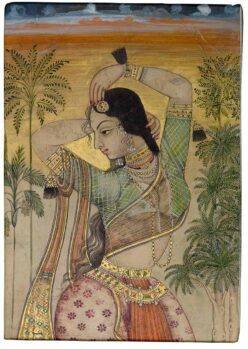In the first part of this article Article 370 Revocation Through the Eyes of an Indian-American Immigrant – Part I I provided a historical, geographic and demographic context to the Kashmir conflict. In this part I provide contemporary political context and speculate on what the future might hold for J&K.
I was a teenager in North-Central India (Uttar Pradesh) when the Kashmir Valley exploded into the national consciousness as a full-blown armed insurgency and secessionist movement in 1989-90. India at that time had state-controlled TV media and most adverse news out of J&K was suppressed. However, we had all heard about Islamic terror groups targeting Hindus. Many of these Hindus trickled into refugee camps in and around New Delhi which was a city I often visited to see relatives, so people had begun to be familiar with the scale of the violence against Hindus despite the attempts of state-controlled media to conceal it.
India’s Rationale for Preventing Kashmir’s Secession
In general, the attitude of most Indians since the late 1980s and early 1990s when the conflict became radicalized has been to hold on to the Kashmir Valley by any means necessary. There is a simple rationale for that position. Around 20% of the population of India is not Hindu (with religious minorities being broken up roughly in 70%/10%/10%/10% proportions of Muslim/Christian/Sikh/Other) and there are close to 200 million Muslims in India in a country of 1,400 million people. Indians have always been proud of having a secular Constitution and State, uniquely so in South Asia. India is the most ethnically and religiously diverse nation in the world bar none. Each and every resident of J&K has always been a full-fledged citizen of India. So, it is a hard pill for any Indian to swallow that 7 million Muslims in the Kashmir Valley feel that they cannot be equal citizens of India and must secede to Pakistan. It would raise questions about the unity of India and its tradition of religious and ethnic diversity. It would also put a question mark against the nearly 200 million Muslims in the rest of India. Consequently, almost all Indians feel an emotional and visceral reaction against allowing even just the overwhelmingly Muslim majority Kashmir Valley region of J&K to secede. India has Muslims in positions of power and influence in every field, ranging from Government to Sports and Entertainment. Some of the biggest Indian movie stars are Muslim minorities. Every Muslim of J&K had more than equal citizenship in secular India. There was simply no reason for a secession movement other than religious fascism.
Most Indians are united on Kashmir policy, regardless of political affiliation. Even If Modi lost the next election in 2024 and even if a Communist government was in power, there is very little chance that their actual policy on J&K would differ very much other than in public rhetoric. That is because a religion-based secession would be disastrous to India’s identity. Continue reading Article 370 Revocation Through the Eyes of an Indian-American Immigrant – Part II
